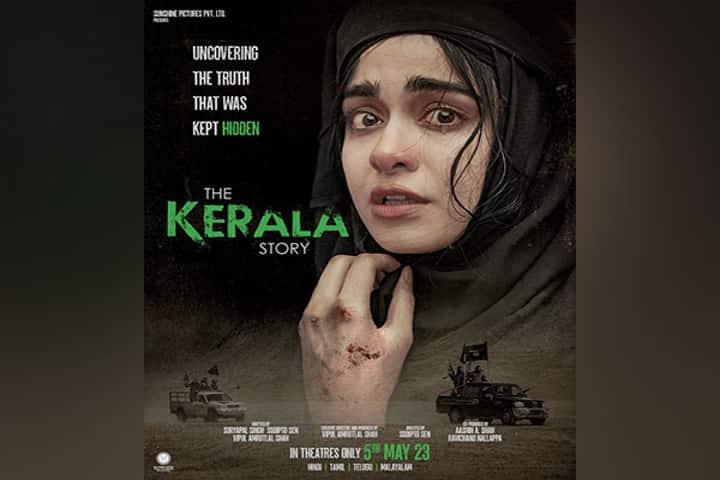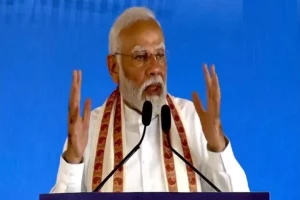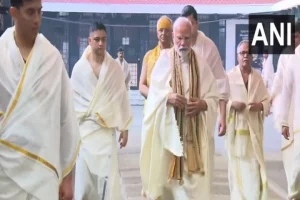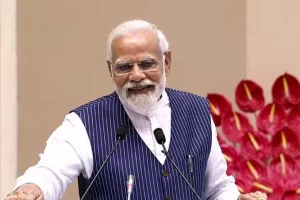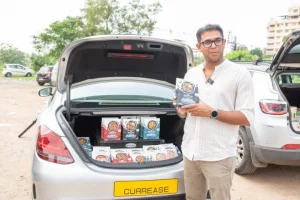Having borne the brunt of unsavoury and unfavourable comments and views on his film “The Kashmir Files”, director Vivek Agnihotri, empathised with Sudipto Sen, whose “The Kerala Story” is now at the centre of a raging controversy.
Agnihotri whose film had ruffled many feathers as it documented about the genocide of Kashmir Pandits and their forced migration while congratulating him and producer Vipul Shah in his open letter on Twitter for their brave effort, warned them about receiving “unimaginable hate”.
CINEMA AND INDIC RENNIASANCE:#TheKeralaStory
I grew up listening to great filmmakers and cinema critics that the only purpose of art is to provoke people into questioning their own beliefs and biases.
I also grew up listening that cinema reflects the reality of a society.
I…
— Vivek Ranjan Agnihotri (@vivekagnihotri) May 6, 2023
“The Kerala Story” puts spotlight on how young girls and women have been forcibly converted to Islam and then recruited for Islamic State of Iraq and Syria. The film in its trailer claims that 32,000 women have been converted and sent to Syria where this radical group had control.
Since the movie talks about India and those who practice Islam – country’s second largest religious group – it was bound to trigger reaction from politicians, the minority community and its leaders and of course, those who believe in defending the secular credentials of the nation.
When the trailer of the film was released, it talked about conversion of 32,000 women to Islam and this figure to the Muslims seemed absolutely absurd. Hence, people asked the director and Vipul Shah to prove this claim. Among them were Kerala State Committee of Muslim Youth League and a Muslim lawyer and actor.
The trailer of The Kerla Story is so heart touching. They showed so many thing about conversation to terrorism of girls in this movie.
The Kerala Story
Akk#SaveOurDaughterspic.twitter.com/U0pHNLW8Yf— Ram Putra Love (@AnilKum25570045) April 30, 2023
Playing devil’s advocate, we may assume that bringing to the fore all the cases and in this case 32,000 would be next to impossible. Probably realising this, the teaser was toned down to “true stories of three young girls from Kerala”.
Yet, there is no denying that conversions have transpired. “The Kerala Story” is purportedly based on the story of four women, who became Muslims and went to Afghanistan with their husbands to join ISIS. The four are in Afghan prison.
They are Nimisha alias Fathima Isa, Merin Jacob alias Mirriam, Sonia Sebastian alias Ayisha and Rafaella and their interview was published under the title “Khorasan Files: The Journey of Indian Islamic State Widows” by the website StratNewsGlobal. What Sen’s film does is use their story to create a bigger narrative.
Readers need note the pattern followed to oppose this film is quite similar to what was followed during opposition to “The Kashmir Files”. First the number of Kashmiri migrants was disputed and then it was claimed that the exodus never took place! In the case of “The Kerala Story” one can expect the same.
Controversy over films and their banning show how people perceive institutions that have been created and work to make India truly democratic. The country has a Central Board of Film Certification which is tasked with “regulating the public exhibition of films under the provisions of the Cinematograph Act 1952”. It passed with “The Kerala Story” with an “A” certificate and suggested 10 scenes to be deleted.
Interestingly among these were one which has an interview with a former Chief Minister of Kerala who is reportedly said that the State in the next 20 years will become a Muslim-majority because of rampant conversion. The other pertains to one which has “dialogues and inappropriate references to all Hindu Gods”.
Seasoned actor Shabana Azmi tweeted that calling for the film’s banning is wrong as it had been passed by CBFC. She wrote “… nobody has the right to become an extra constitutional authority”.
The teaser also resulted in a petition being filed in the Supreme Court to stay the film’s release. Upholding the efficacy of CBFC, SC refused to entertain the request and said “if you want to challenge the release of the movie, you should challenge the certification and through appropriate forum”.
As citizens everyone enjoys the rights and benefits of India’s democracy irrespective of their faith and this necessarily entails respecting the country’s institutions too!
The political parties, meanwhile, have joined the bandwagon and taken opposing stands, many of which undermine authority of institutions like CBFC while reflecting appeasement of a certain community. Not far behind are the State Governments. Congress has condemned the film, Mamata Banerjee, West Bengal CM decided to ban it. In fact, a Twitter post with the video shows cops enforcing it. Surprisingly, the Communist Party of India (Marxist)-led Kerala Government whose Chief Minister Pinarayi Vijayan issued a statement against the film, did not ban it.
This is called 'Real Fascism'
Bengal police came to stop a housefull show of 'The Kerala Story' pic.twitter.com/5LyQDdfQCo
— THE INTREPID 🇮🇳 (Modi Ka Parivar) (@Theintrepid_) May 9, 2023
BJP-ruled Madhya Pradesh and Uttar Pradesh have decided to make the film tax-free. In Maharashtra where BJP is part of the Government, the authorities have assured protection to the filmmakers and exhibitors.
In all the din created about the film being unduly critical of Muslims, it needs to be pointed out that the narrative talks exclusively about ISIS and its sympathisers. Nowhere are Muslims condemned or shown as terrorists.
So much for feeling hurt about something which does not exist!
What can’t be denied is that ISIS did recruit men and women from India. It was in 2013 this came to light. ISIS set up modules to encourage conversions and join them in Afghanistan and Syria. Many from Kerala joined. In its 2020 report on terrorism, the United Nations had stated there were a substantial number of ISIS terrorists who hailed from Kerala.
Popular Front of India, the banned outfit too played a vital role in radicalisation and conversion of non-Muslims. The National Investigation Agency has highlighted this in their report submitted in a Kochi court in 2022.
While the converts had been moving to fight ISIS battle, their stories came to light in 2016 when many were apprehended and investigated in Afghanistan. The four women in The Kerala Story were also one of them who were part of the 21-member group that had become part of ISIS in 2016 with their husbands.
Already threats are being given to those who are praising the film or supporting it by the minority community. If they can’t tolerate a film which is based on real-life incidents then they don’t have the right to decide how others should react to it. They need to be told, their right to swing their arm ends where the nose of others begins!






